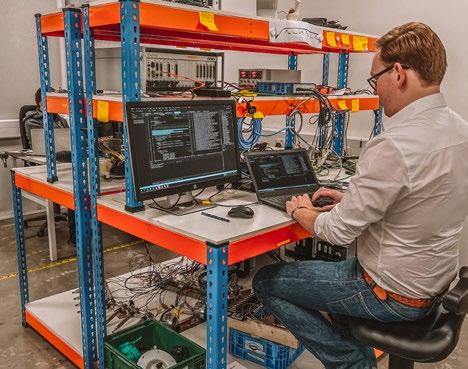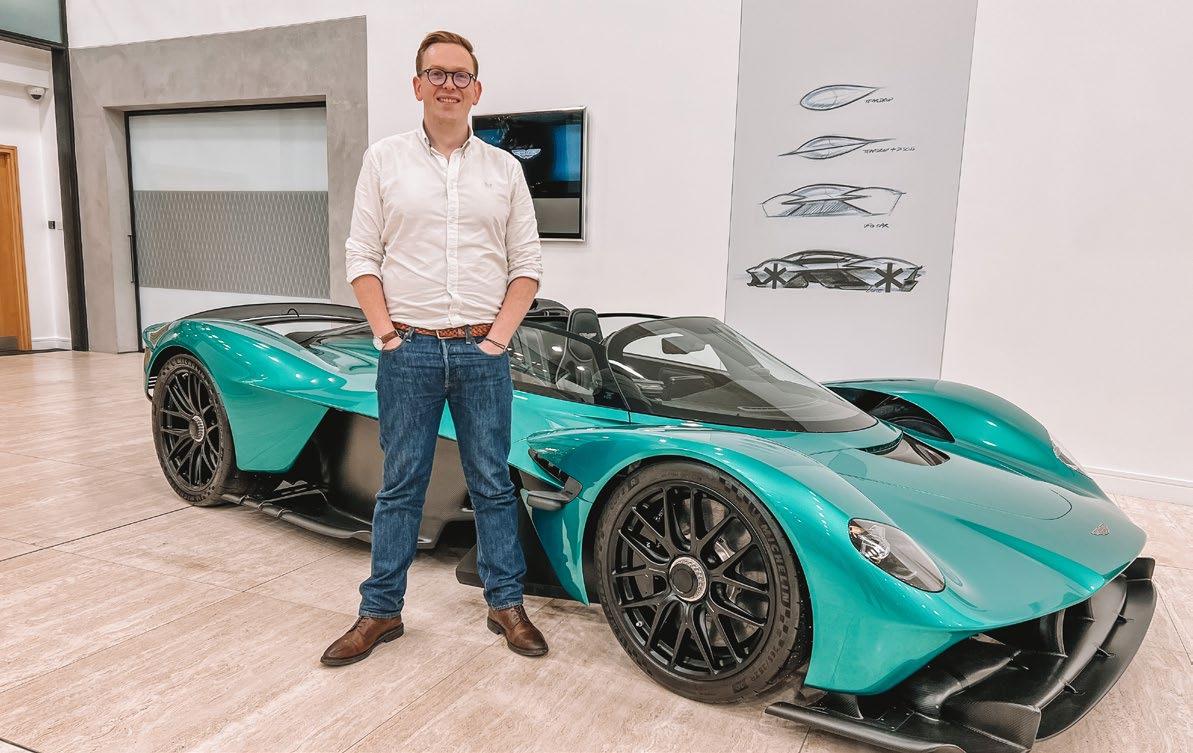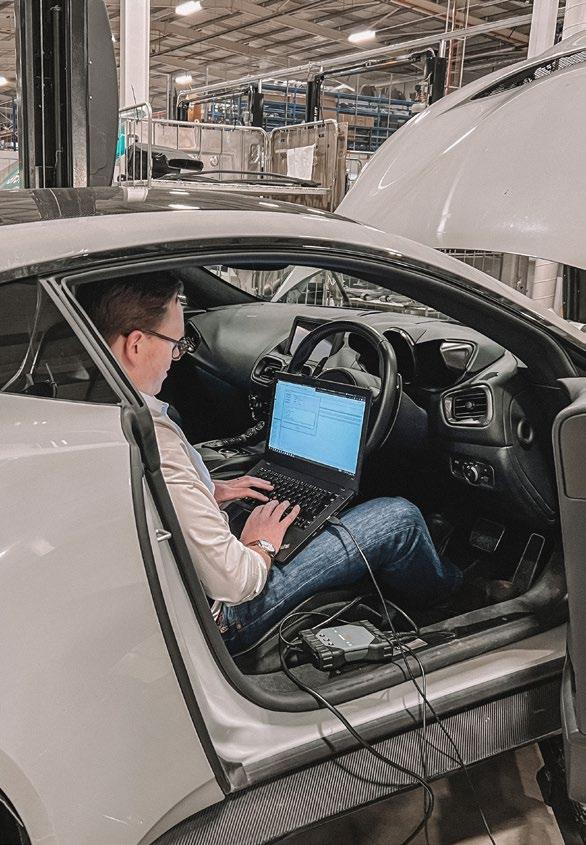
3 minute read
Engineering for James Bond
Russell, class of ’12, left school to study at Oxford Brookes University. Remembered by his teachers as a very bright and modest young man he initially studied Mechanical Engineering before deciding that Software Development (much less maths apparently) was more to his liking, an outcome that he felt his old computing teaching, Mr Smith, would find amusing.
Russell previously worked as the Lead Field software engineer at Opus IVS, managing development for Porsche and VAG diagnostics. Today, Russell is a successful project engineer at Aston Martin. His job revolves around the development of technology in high-end cars for dealerships and workshops. His day-to-day is a mixed bag, sometimes sat at his desk writing software, at other times trouble shooting with engineers, but the highlight is getting to take the cars out, performing test drives and checking the viability and reliability of the computer software based on the data provided. Russell also liaises with the after sales team and the dealerships to make sure that when they're servicing customer cars they're getting what they require from the diagnostic tools.
Russell’s job as a software engineer demands that he write software, in addition to maintaining systems. The split is around 80% writing software and 20% helping the engineers resolve issues with diagnostics or ‘buggy’ software.
Unsurprisingly he loves fast cars: luxurious, and a great opportunity to flex on Instagram. But what goes into the technology behind these cars?
All cars have an ECU (Engine Control Unit) socket, we plug our tools into the car and that gives us access to all the data on the car. We can read out information like engine temperature, engine speed and myriad other data points.
Russell also manages functions that interact with the computers on the car to help calibrate ECUs, check for issues, and read faults. It is often glamourous work, giving him the opportunity to work on cars like the Valkyrie and the DBX 707.
His team sits within the electrical engineering department. They receive requests from other departments, such as the Powertrain team, and then must figure out solutions; how to write the code, to implement changes and ensure that the final product is user friendly. He leads a team of three who are all very self-managing and independent. Occasionally they dabble in cross-departmental work, such as liaising with the after sales team who support dealerships.
In a previous role Russell advanced rapidly into management, which upon moving to Aston Martin allowed him to jump into a Team Leader position very quickly. He says that luck plays a role in succeeding at a large company, although there is still an “every man for himself” ethos, which requires Russell to be thickskinned and hardworking.
Russell studied at Oxford Brookes University, where his love of cars drove him towards mechanical engineering. However a heavy maths workload required a change of gear as Russell came to the conclusion that the course simply wasn’t for him – he says Mr Mordente (former maths teacher at HSD) would agree. Deciding his strengths lay elsewhere, he had enjoyed the hands-on aspects of Computing & Graphic Communication, he changed degree to Software Engineering, a choice he feels his HSD computer studies teacher (Mr Smith) would “have a good chuckle at”. (Though when we asked Mr Smith he said that he is not at all surprised by Russell’s success or that he was able to thrive on the course he choose).
As recently as 15 years ago cars typically had three computers, but Aston Martin’s new SUV has 90 – all of which require specific code and increasing numbers of software engineers. As a result, those with the skills like Russell are much in demand. At present there are 24 million software developers globally and demand for professionals rose by 17% this year alone.
Russell’s advice for breaking into tech is to specialise – for Russell this was automotive software and he has acquired a very desirable skill set. Saturated fields like game development will be a struggle to survive in without becoming dedicated to a particular market/niche.
But with popularity comes downsides, whilst there is a lot of money and glamour in software the field is becoming increasingly competitive and requires a “the harder you work the further you’ll go” mentality. However, Russell points out that having great people skills plays a crucial part in standing out from the crowd.
For the coding geeks out there, throughout his education and career Russell has used a wide range of coding languages from power BASIC to more commonly known languages like c#, python and JavaScript – c# being Russell’s preferred language for development.
Russell loves being at Aston Martin, very much a Great British institution, though perks like being able to take a DBX home over the weekend help!
By Kaile Liu (Form 6)












